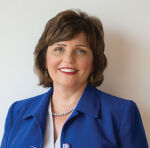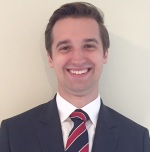Enhancing the front lines of emergency care through analytics
March 23, 2018
By Beth Fuller, Deborah Locklair and Steve Wuench
Interfacing with nearly every department in the health system and the "front door" of most hospitals, the emergency department (ED) serves an important purpose for many patients' overall health care journey. Nearly 142 million patients visited an ED in 2014, with 90.8% of them only experiencing the ED, as admission was not required.
But not every emergency department is the same. Hospitals vary widely in their service offerings, technology strategy, patient experience, and more to best meet the needs of their unique populations. In response to increased volume and issues with throughput, many health systems are enhancing their EDs for optimal performance through a renewed strategic approach in which data is leveraged in a manner that increases both technology utilization and staff efficiency.
Emergency departments have begun to recognize the power of performance analytics and transparency in the operation they can provide. McLeod Health Clarendon Hospital (MHCH) in Manning, South Carolina was a newly acquired hospital in the McLeod Health System, and the ED began experiencing a steady increase in volume, signaling the need for throughput and performance improvements.
With ED overhauls on the horizon, MHCH collaborated with Philips to jumpstart the efforts. The health tech company’s consultants were asked to help improve ED front-end operations and patient throughput, as well as create a culture of accountability for ED staff. To kick off the collaboration, the team started by conducting a comprehensive assessment of the ED which included a comprehensive data analytics review, numerous on-site observations, and staff and leadership interviews. The assessment revealed a number of inefficiencies and education gaps which negatively impacted the department’s overall operations.
To ensure the process changes in development would be able to fully support these necessary improvements, a performance dashboard was recommended to serve as an essential component in highlighting performance issues, monitoring the impact of changes made and helping MHCH achieve its operational goals.
With these goals in mind, the two teams began a 13-week performance improvement engagement, focused on the identification and implementation of new processes for the ED and its staff. The program focus included the following:
• Revision of triage processes
• Implementation of split-flow processes
• Establishment of new patient experience standards
• Enhanced charge nurse role
• Revised performance expectations
• Implementation of novice nurse training
These change initiatives would be consistently monitored via the performance metrics built into the new ED dashboard. Through the use of the dashboard, the consultants were able to drill down on the root causes of throughput issues, analyzing factors by the month, day – even by the hour – as well as by the physician and by patient demographics. As the process changes were implemented, the dashboard metrics were used to measure impact and delineate which new processes were most successful and which processes needed additional change to reach the highest potential.
The consultants provided dashboard training to MHCH’s active users, to demonstrate how they are able to drill down to the root-causes of performance issues, as well as offer maintenance support and ongoing consulting guidance. The dashboard is updated from MHCH’s system data daily via automatic uploads from multiple sources to maintain ongoing transparency of the department’s performance and help reliably sustain improvements.
The impact of the performance dashboard was not limited exclusively to the analytics and performance improvement teams. The dashboard also sent performance snapshots via automated daily emails to stakeholders, including MHCH’s hospital C-suite, medical directors, and nursing leadership within the ED. The emails provide the most relevant information to each person, based on their role. This level of visibility ensured all key stakeholders had direct access to the performance trends so they would have the information they needed in a single dashboard view.
The consultants also recommended education initiatives including educating staff on the 5-level Emergency Severity Index (ESI) triage system including inter-rater reliability, ED patient experience standards, and a customized novice nurse curriculum. The education programs were well-received by staff and leadership alike.
“The Philips team provided exceptional clinical and operational expertise and became part of our Emergency Department team,” said Debbie Locklair, MEd, FACHE, senior vice president and regional administrator for McLeod Health. “They collaborated with our staff to implement process changes, create an analytics dashboard and develop training programs. Together, these initiatives have had a significant impact on our Quality Metrics performance and patient satisfaction scores with overall wait times.”
As a result of these collaborative and patient-focused engagements, MHCH significantly improved its performance metrics, including:
• Reduced arrival-to-triage by 87.5% (12 to 1.5 mins)
• Reduced arrival-to-provider by 51.5% (33 to 16 mins)
• Reduced LWBS (Left Without Being Seen) by 65% (4% to 1.4%) which generated $567,000+ in additional annual collectable revenue
Through the implementation of these new operational processes and the performance dashboard, the consultants helped MHCH achieve the high level of performance improvement they had aspired to reach. The collaborative and data-based approach has provided the MHCH team with the methods, tools, and increased commitment to continue the efforts for long-term success.
About the Authors:
Beth Fuller, MS, RN, CEN, CCRN, CFRN — Beth has over 35 years of emergency, ICU, and critical care transport leadership experience in academic medical centers and community hospitals. She possesses extensive clinical and leadership knowledge and experience and has led ED change and reduced cost while improving patient satisfaction and employee engagement. Beth has assisted several organizations in redesigning their triage systems based on best practices, resulting in substantial decreased length of stay, decreased left without being seen rates, and improved patient satisfaction. She holds nursing certifications in critical care, emergency nursing, and flight nursing. Beth is a senior consulting manager for Philips Blue Jay Consulting and can be reached at beth.fuller@philips.com.
Deborah Locklair, FACHE, MEd — Deborah has over 25 years of health care experience and 18 years as a hospital administrator with McLeod Health. Over the past three years, Deborah has served as the interim administrator during multiple campus transitions, and most recently was responsible for the oversight of three rural hospital campuses in the role of Regional Administrator. Deborah has just recently accepted the role of Chief of Human Resources for McLeod Health. The not-for profit system has 7 hospitals and over 8500 employees. Deborah serves on the board of trustees of the SC Hospital Association, board of directors for the SC Office of Rural Health Board, as well as a variety of health care leadership boards. She can be reached at dlocklair@mcleodhealth.org.
Steve Wuench — Steve leverages big data and advanced analytics to help hospitals and health care systems identify operational and financial performance improvement opportunities. He is experienced in clinical operations, health care informatics, health care administration, project management, and data analytics. Steve has assisted many health care organizations in utilizing their data in a more effective manner to promote performance improvement, including initiatives focused on reducing bottlenecks and improvement in patient flow and wait times, population management and expense reduction efforts. He holds a BBA degree in economics and finance. Steve is a Solution Analytics senior manager for Philips Healthcare Transformation Services and can be reached at steve.wuench@philips.com.
Interfacing with nearly every department in the health system and the "front door" of most hospitals, the emergency department (ED) serves an important purpose for many patients' overall health care journey. Nearly 142 million patients visited an ED in 2014, with 90.8% of them only experiencing the ED, as admission was not required.
But not every emergency department is the same. Hospitals vary widely in their service offerings, technology strategy, patient experience, and more to best meet the needs of their unique populations. In response to increased volume and issues with throughput, many health systems are enhancing their EDs for optimal performance through a renewed strategic approach in which data is leveraged in a manner that increases both technology utilization and staff efficiency.
Emergency departments have begun to recognize the power of performance analytics and transparency in the operation they can provide. McLeod Health Clarendon Hospital (MHCH) in Manning, South Carolina was a newly acquired hospital in the McLeod Health System, and the ED began experiencing a steady increase in volume, signaling the need for throughput and performance improvements.
With ED overhauls on the horizon, MHCH collaborated with Philips to jumpstart the efforts. The health tech company’s consultants were asked to help improve ED front-end operations and patient throughput, as well as create a culture of accountability for ED staff. To kick off the collaboration, the team started by conducting a comprehensive assessment of the ED which included a comprehensive data analytics review, numerous on-site observations, and staff and leadership interviews. The assessment revealed a number of inefficiencies and education gaps which negatively impacted the department’s overall operations.
To ensure the process changes in development would be able to fully support these necessary improvements, a performance dashboard was recommended to serve as an essential component in highlighting performance issues, monitoring the impact of changes made and helping MHCH achieve its operational goals.
With these goals in mind, the two teams began a 13-week performance improvement engagement, focused on the identification and implementation of new processes for the ED and its staff. The program focus included the following:
• Revision of triage processes
• Implementation of split-flow processes
• Establishment of new patient experience standards
• Enhanced charge nurse role
• Revised performance expectations
• Implementation of novice nurse training
These change initiatives would be consistently monitored via the performance metrics built into the new ED dashboard. Through the use of the dashboard, the consultants were able to drill down on the root causes of throughput issues, analyzing factors by the month, day – even by the hour – as well as by the physician and by patient demographics. As the process changes were implemented, the dashboard metrics were used to measure impact and delineate which new processes were most successful and which processes needed additional change to reach the highest potential.
The consultants provided dashboard training to MHCH’s active users, to demonstrate how they are able to drill down to the root-causes of performance issues, as well as offer maintenance support and ongoing consulting guidance. The dashboard is updated from MHCH’s system data daily via automatic uploads from multiple sources to maintain ongoing transparency of the department’s performance and help reliably sustain improvements.
The impact of the performance dashboard was not limited exclusively to the analytics and performance improvement teams. The dashboard also sent performance snapshots via automated daily emails to stakeholders, including MHCH’s hospital C-suite, medical directors, and nursing leadership within the ED. The emails provide the most relevant information to each person, based on their role. This level of visibility ensured all key stakeholders had direct access to the performance trends so they would have the information they needed in a single dashboard view.
The consultants also recommended education initiatives including educating staff on the 5-level Emergency Severity Index (ESI) triage system including inter-rater reliability, ED patient experience standards, and a customized novice nurse curriculum. The education programs were well-received by staff and leadership alike.
“The Philips team provided exceptional clinical and operational expertise and became part of our Emergency Department team,” said Debbie Locklair, MEd, FACHE, senior vice president and regional administrator for McLeod Health. “They collaborated with our staff to implement process changes, create an analytics dashboard and develop training programs. Together, these initiatives have had a significant impact on our Quality Metrics performance and patient satisfaction scores with overall wait times.”
As a result of these collaborative and patient-focused engagements, MHCH significantly improved its performance metrics, including:
• Reduced arrival-to-triage by 87.5% (12 to 1.5 mins)
• Reduced arrival-to-provider by 51.5% (33 to 16 mins)
• Reduced LWBS (Left Without Being Seen) by 65% (4% to 1.4%) which generated $567,000+ in additional annual collectable revenue
Through the implementation of these new operational processes and the performance dashboard, the consultants helped MHCH achieve the high level of performance improvement they had aspired to reach. The collaborative and data-based approach has provided the MHCH team with the methods, tools, and increased commitment to continue the efforts for long-term success.
About the Authors:
Beth Fuller, MS, RN, CEN, CCRN, CFRN — Beth has over 35 years of emergency, ICU, and critical care transport leadership experience in academic medical centers and community hospitals. She possesses extensive clinical and leadership knowledge and experience and has led ED change and reduced cost while improving patient satisfaction and employee engagement. Beth has assisted several organizations in redesigning their triage systems based on best practices, resulting in substantial decreased length of stay, decreased left without being seen rates, and improved patient satisfaction. She holds nursing certifications in critical care, emergency nursing, and flight nursing. Beth is a senior consulting manager for Philips Blue Jay Consulting and can be reached at beth.fuller@philips.com.
Deborah Locklair, FACHE, MEd — Deborah has over 25 years of health care experience and 18 years as a hospital administrator with McLeod Health. Over the past three years, Deborah has served as the interim administrator during multiple campus transitions, and most recently was responsible for the oversight of three rural hospital campuses in the role of Regional Administrator. Deborah has just recently accepted the role of Chief of Human Resources for McLeod Health. The not-for profit system has 7 hospitals and over 8500 employees. Deborah serves on the board of trustees of the SC Hospital Association, board of directors for the SC Office of Rural Health Board, as well as a variety of health care leadership boards. She can be reached at dlocklair@mcleodhealth.org.
Steve Wuench — Steve leverages big data and advanced analytics to help hospitals and health care systems identify operational and financial performance improvement opportunities. He is experienced in clinical operations, health care informatics, health care administration, project management, and data analytics. Steve has assisted many health care organizations in utilizing their data in a more effective manner to promote performance improvement, including initiatives focused on reducing bottlenecks and improvement in patient flow and wait times, population management and expense reduction efforts. He holds a BBA degree in economics and finance. Steve is a Solution Analytics senior manager for Philips Healthcare Transformation Services and can be reached at steve.wuench@philips.com.



